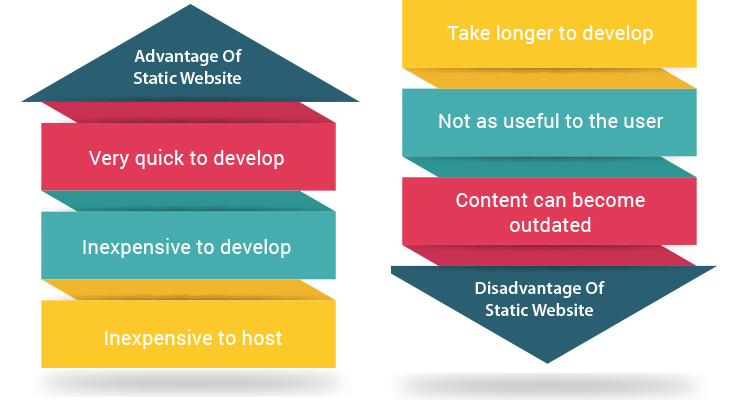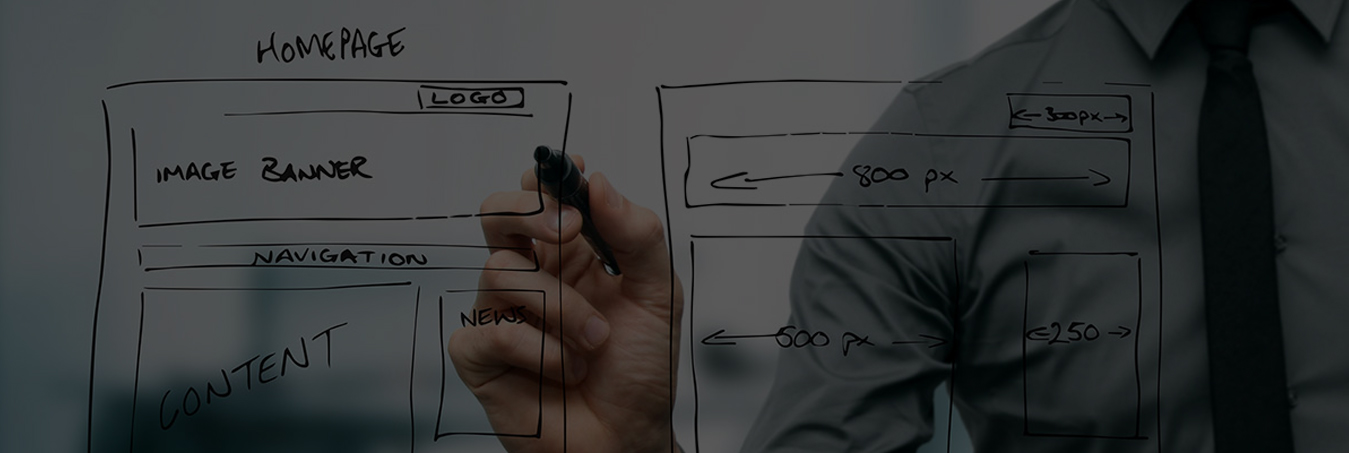The very first question that a developer asks you when you ask him to make a website for you is, ”What kind of a website you are looking for: Static or dynamic”? This blog explains what “Static websites” are and why we need them.
So let us begin with an introduction to static websites first.
What are Static websites?
Are you aware of what the term “Static” entails? In a literal sense, it can be explained as follows “something that is restricted to movement”. Hence, to break it down into simpler terms, static websites are those where the content cannot be altered without a change in the source code by the developer. In other words, these websites display the exact same content every time a user visits the website.
Static websites are made using only two languages namely: HTML and CSS. There is no scripting involved and hyperlinks are the only source of connectivity to such websites.
Who should go for a static website?
If you have just started your business and do not want to invest much in your website, static websites are the best solution for you. Static websites usually have less content (not more than 3 pages) and are very easy to develop.
However, fully functional static websites are hardly in use nowadays because there are so many features that these websites lack when compared to dynamic websites.
What are the advantages of a Static website?
- 1) Flexibility:
The most important advantage of a static website is its Flexibility. Each and every page of a static website can be customized as per the given content. The developer can input various effects and design according to the client’s requirement.
For example, if you are an interior designer you would want different themes for different products so that each page matches the theme of your product. - 2) Less expensive :
Cost of developing a static website is minimal which makes it ideal if you’re just starting off. - 3) Saves time :
Any beginner can develop a static website within a day or two with some basic knowledge of coding. - 4) Minimal hosting charges :
Hosting servers for static websites are very cheap and much easier to maintain when compared to the static server. - 5) Indexing becomes easier :
“Indexing” refers to the process of adding the content of your website to search engines like Google, Yahoo, Bing and many more. Search engines like Google have its own bots that crawl into a website and index the web-pages depending on the type of meta-tags used. Hence, indexing makes it easier for your website to be at the top.
Since static websites involve just a bunch of HTML and CSS codings, indexing becomes an easier process for such websites. - 6) Easy transferring :
Since static websites have a simple structure, they can be transferred easily from the hosting server to the client’s end.

What are the disadvantages of a static website?
- 1) Resistant to changes :
As explained earlier, the content of a static website cannot be changed until and unless the developer changes the source code. It gets very difficult for a beginner to add any new content to the website since all the HTML files have to be altered even for a minor change in the web page. - 2) Not suitable for a long-term usage :
Static websites serve the purpose of a basic website when your business is completely new. However, as you grow with time your website will demand some upgrades. Hence, static websites are not meant for long-term usage.
“The first impression is the last impression” and your website is that “First impression!” Your website is the only medium through which your customer can get in touch with you. Hence, having a good-quality website is a must to survive in the market. Depending on the demand for your products and services, you need to decide whether having a static-website is going to benefit you in the long-run.




